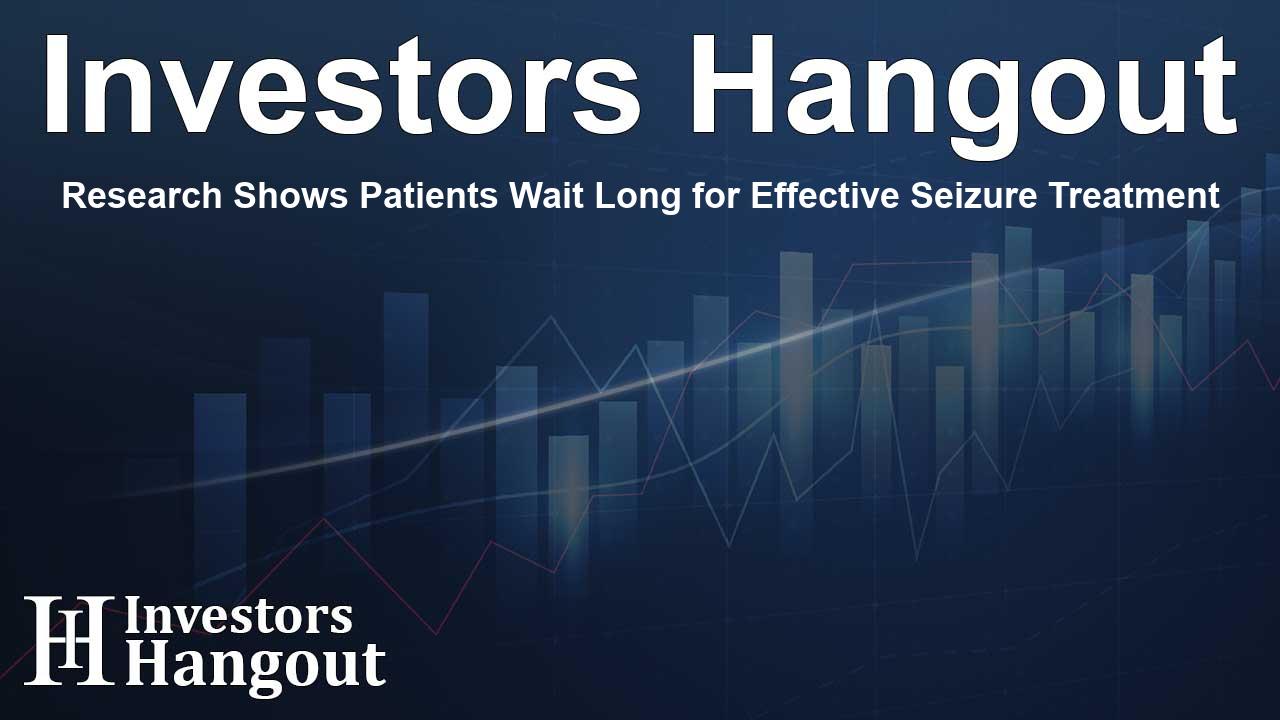Research Shows Patients Wait Long for Effective Seizure Treatment

Understanding the Delay in Seizure Treatment Effectiveness
Patients diagnosed with focal epilepsy often face significant waiting periods for effective seizure relief, as shown in a comprehensive study led by researchers at a prominent health institution. The findings indicate that while antiseizure medications assist many individuals, the journey to finding the right medication or dosage can extend over a year for the majority.
What Is Focal Epilepsy?
Focal epilepsy, which affects about 60% of all epilepsy patients, arises when a specific brain region experiences a surge of electrical activity leading to focal seizures. These seizures can manifest as various symptoms, including sudden emotional changes, physical sensations, or unusual behaviors. While the focus is often placed on those who struggle to respond to medication, this study sheds light on those who may experience initial treatment challenges but might respond to alternative drugs later on.
The Study Findings
This groundbreaking research, considered one of the first major studies in over a decade, assessed nearly 450 participants, including men, women, and teens newly diagnosed with focal epilepsy. Results revealed that while over half would eventually find a medication that worked, substantial improvements often did not manifest until an average of 12 months post-treatment initiation. Some individuals required even more time before experiencing significant relief from seizures.
Expectations for Patients with Focal Epilepsy
According to Dr. Jacqueline French, senior author and a neurologist involved in the research, patients diagnosed with focal epilepsy should brace themselves for an extended adjustment phase while healthcare providers refine treatment strategies. Initial therapy selection can be crucial, and the study suggested that many physicians might not be choosing the most effective antiseizure medication on their initial attempt.
Common Medication Protocols
Typically, neurologists prescribe levetiracetam as a first-line treatment due to its efficacy across various seizure types and minimal interactions with other medications. However, the study indicates that although 57% of participants were started on this drug, only 25% achieved seizure freedom after the first treatment.
Study Methodology
Spanning several years, the research included data from 34 epilepsy centers across various regions. Researchers meticulously gathered information on patients' medical histories, seizure frequencies, and demographic characteristics. Participants documented their seizure occurrences through an electronic diary, reporting whether they were seizure-free or had experienced episodes. Details such as the duration and nature of seizures were recorded alongside information on medications, dosages, and reasons for discontinuation.
Seizure Frequency Insights
The findings revealed that 63% of participants encountered ongoing or increasing seizure activity during their first treatment year, regardless of eventual success in achieving seizure control. Additionally, individuals who experienced infrequent seizures prior to commencing treatment were more likely to respond favorably to medication, highlighting a correlation between seizure frequency and treatment responsiveness.
Implications for Future Research
Dr. French emphasized the importance of utilizing existing medications more effectively as opposed to seeking out the next new drug as a solution. The researchers intend to investigate further those patients who continued to experience seizures throughout the study.
Moreover, the research underscores that various factors, including treatment choices, dosages, and adherence to prescribed regimens, have not been directly evaluated, indicating areas for future investigation.
About NYU Langone Health
NYU Langone Health is recognized as a premier health organization that emphasizes exceptional patient outcomes through stringent quality protocols. Notably, it has consistently ranked at the top for its comprehensive medical services and has been honored for several clinical specialties. The institution's revenue and breadth of medical educational programs, including two tuition-free medical schools, further solidify its reputation.
Frequently Asked Questions
What is focal epilepsy?
Focal epilepsy is a type of epilepsy that occurs when a specific region of the brain experiences excessive electrical activity, leading to seizures.
How long do patients typically wait for effective treatment?
Patients may wait at least 12 months, on average, to find a medication or regimen that effectively manages their seizures.
What is the common first treatment for focal epilepsy?
Levetiracetam is commonly prescribed as the initial treatment for many patients due to its broad efficacy and safety profile.
What factors can affect treatment responsiveness?
Seizure frequency prior to treatment and the presence of psychological disorders can significantly influence how well patients respond to medication.
What are researchers planning to do next?
Next steps include a deeper investigation into patients who did not achieve seizure freedom during the study period and examining factors affecting their treatment response.
About The Author
Contact Dylan Bailey privately here. Or send an email with ATTN: Dylan Bailey as the subject to contact@investorshangout.com.
About Investors Hangout
Investors Hangout is a leading online stock forum for financial discussion and learning, offering a wide range of free tools and resources. It draws in traders of all levels, who exchange market knowledge, investigate trading tactics, and keep an eye on industry developments in real time. Featuring financial articles, stock message boards, quotes, charts, company profiles, and live news updates. Through cooperative learning and a wealth of informational resources, it helps users from novices creating their first portfolios to experts honing their techniques. Join Investors Hangout today: https://investorshangout.com/
The content of this article is based on factual, publicly available information and does not represent legal, financial, or investment advice. Investors Hangout does not offer financial advice, and the author is not a licensed financial advisor. Consult a qualified advisor before making any financial or investment decisions based on this article. This article should not be considered advice to purchase, sell, or hold any securities or other investments. If any of the material provided here is inaccurate, please contact us for corrections.
